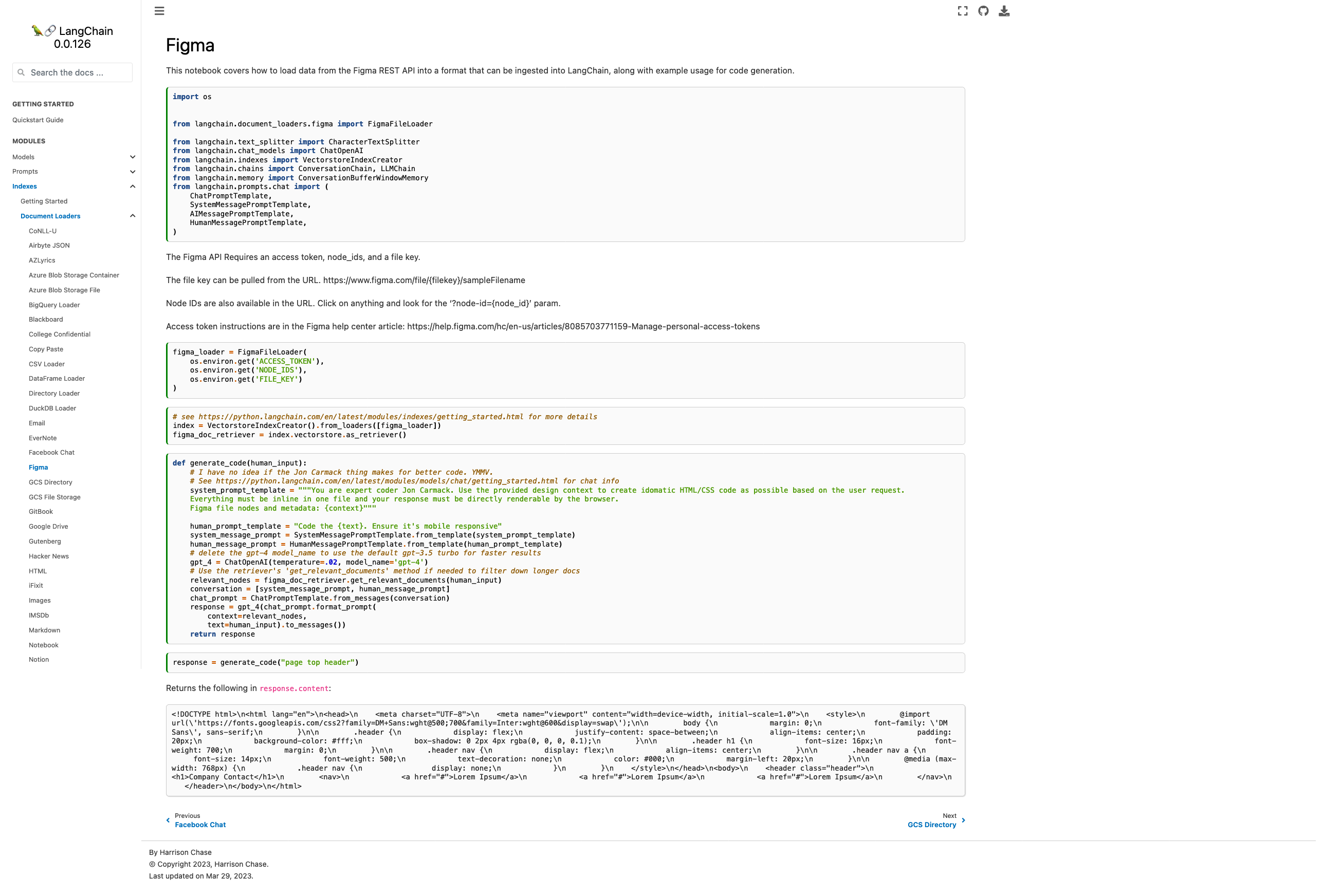This PR updates Qdrant to 1.1.1 and introduces local mode, so there is
no need to spin up the Qdrant server. By that occasion, the Qdrant
example notebooks also got updated, covering more cases and answering
some commonly asked questions. All the Qdrant's integration tests were
switched to local mode, so no Docker container is required to launch
them.
`persist()` is required even if it's invoked in a script.
Without this, an error is thrown:
```
chromadb.errors.NoIndexException: Index is not initialized
```
### Summary
This PR introduces a `SeleniumURLLoader` which, similar to
`UnstructuredURLLoader`, loads data from URLs. However, it utilizes
`selenium` to fetch page content, enabling it to work with
JavaScript-rendered pages. The `unstructured` library is also employed
for loading the HTML content.
### Testing
```bash
pip install selenium
pip install unstructured
```
```python
from langchain.document_loaders import SeleniumURLLoader
urls = [
"https://www.youtube.com/watch?v=dQw4w9WgXcQ",
"https://goo.gl/maps/NDSHwePEyaHMFGwh8"
]
loader = SeleniumURLLoader(urls=urls)
data = loader.load()
```
### Summary
Adds a new document loader for processing e-publications. Works with
`unstructured>=0.5.4`. You need to have
[`pandoc`](https://pandoc.org/installing.html) installed for this loader
to work.
### Testing
```python
from langchain.document_loaders import UnstructuredEPubLoader
loader = UnstructuredEPubLoader("winter-sports.epub", mode="elements")
data = loader.load()
data[0]
```
- Current docs are pointing to the wrong module, fixed
- Added some explanation on how to find the necessary parameters
- Added chat-based codegen example w/ retrievers
Picture of the new page:

Please let me know if you'd like any tweaks! I wasn't sure if the
example was too heavy for the page or not but decided "hey, I probably
would want to see it" and so included it.
Co-authored-by: maxtheman <max@maxs-mbp.lan>
This PR adds Notion DB loader for langchain.
It reads content from pages within a Notion Database. It uses the Notion
API to query the database and read the pages. It also reads the metadata
from the pages and stores it in the Document object.
# What does this PR do?
This PR adds similar to `llms` a SageMaker-powered `embeddings` class.
This is helpful if you want to leverage Hugging Face models on SageMaker
for creating your indexes.
I added a example into the
[docs/modules/indexes/examples/embeddings.ipynb](https://github.com/hwchase17/langchain/compare/master...philschmid:add-sm-embeddings?expand=1#diff-e82629e2894974ec87856aedd769d4bdfe400314b03734f32bee5990bc7e8062)
document. The example currently includes some `_### TEMPORARY: Showing
how to deploy a SageMaker Endpoint from a Hugging Face model ###_ ` code
showing how you can deploy a sentence-transformers to SageMaker and then
run the methods of the embeddings class.
@hwchase17 please let me know if/when i should remove the `_###
TEMPORARY: Showing how to deploy a SageMaker Endpoint from a Hugging
Face model ###_` in the description i linked to a detail blog on how to
deploy a Sentence Transformers so i think we don't need to include those
steps here.
I also reused the `ContentHandlerBase` from
`langchain.llms.sagemaker_endpoint` and changed the output type to `any`
since it is depending on the implementation.
Fixes the import typo in the vector db text generator notebook for the
chroma library
Co-authored-by: Anupam <anupam@10-16-252-145.dynapool.wireless.nyu.edu>
add the state_of_the_union.txt file so that its easier to follow through
with the example.
---------
Co-authored-by: Jithin James <jjmachan@pop-os.localdomain>
# Description
Add `RediSearch` vectorstore for LangChain
RediSearch: [RediSearch quick
start](https://redis.io/docs/stack/search/quick_start/)
# How to use
```
from langchain.vectorstores.redisearch import RediSearch
rds = RediSearch.from_documents(docs, embeddings,redisearch_url="redis://localhost:6379")
```
This PR:
- Increases `qdrant-client` version to 1.0.4
- Introduces custom content and metadata keys (as requested in #1087)
- Moves all the `QdrantClient` parameters into the method parameters to
simplify code completion
Checking if weaviate similarity_search kwargs contains "certainty" and
use it accordingly. The minimal level of certainty must be a float, and
it is computed by normalized distance.
### Description
This PR adds a wrapper which adds support for the OpenSearch vector
database. Using opensearch-py client we are ingesting the embeddings of
given text into opensearch cluster using Bulk API. We can perform the
`similarity_search` on the index using the 3 popular searching methods
of OpenSearch k-NN plugin:
- `Approximate k-NN Search` use approximate nearest neighbor (ANN)
algorithms from the [nmslib](https://github.com/nmslib/nmslib),
[faiss](https://github.com/facebookresearch/faiss), and
[Lucene](https://lucene.apache.org/) libraries to power k-NN search.
- `Script Scoring` extends OpenSearch’s script scoring functionality to
execute a brute force, exact k-NN search.
- `Painless Scripting` adds the distance functions as painless
extensions that can be used in more complex combinations. Also, supports
brute force, exact k-NN search like Script Scoring.
### Issues Resolved
https://github.com/hwchase17/langchain/issues/1054
---------
Signed-off-by: Naveen Tatikonda <navtat@amazon.com>